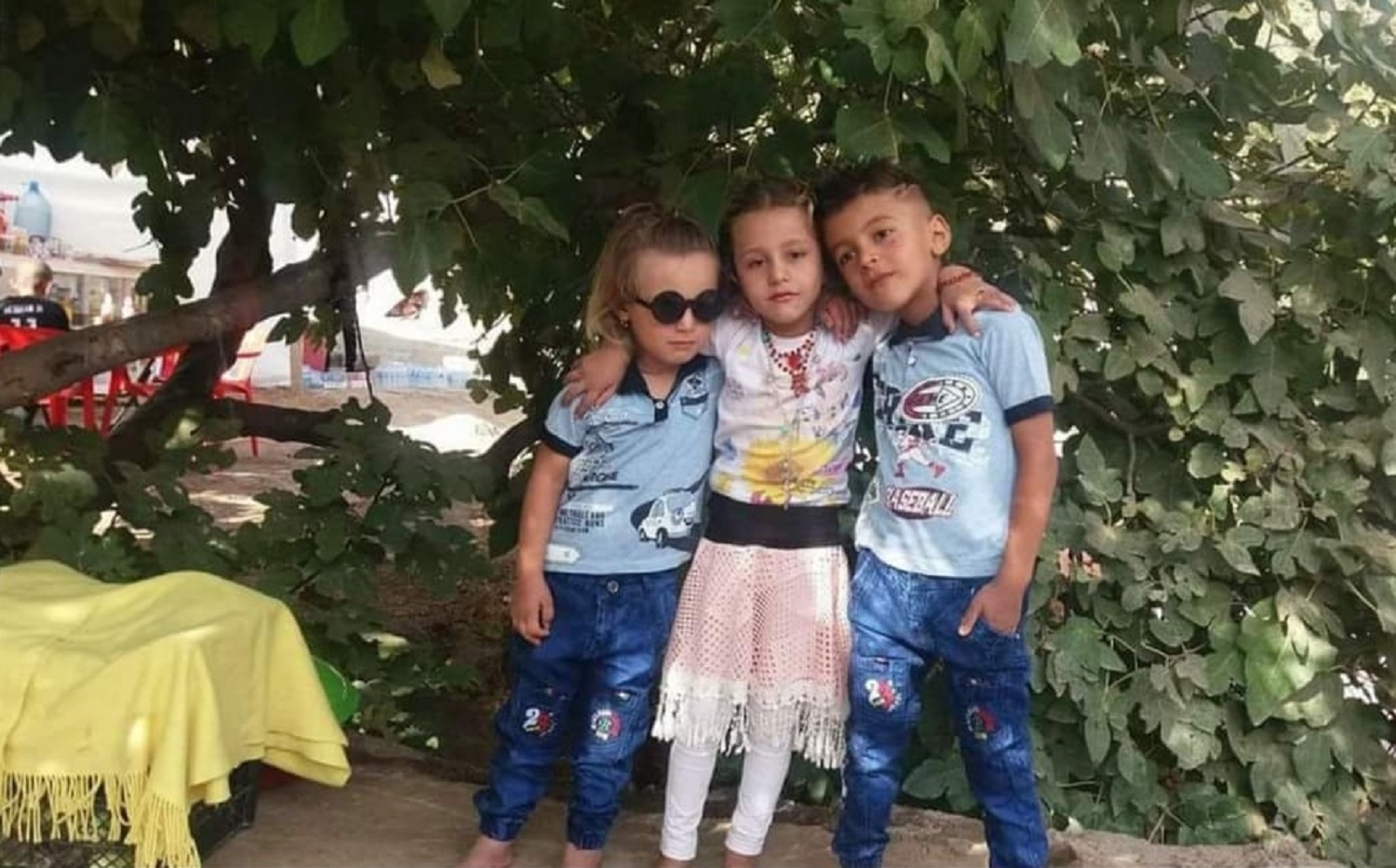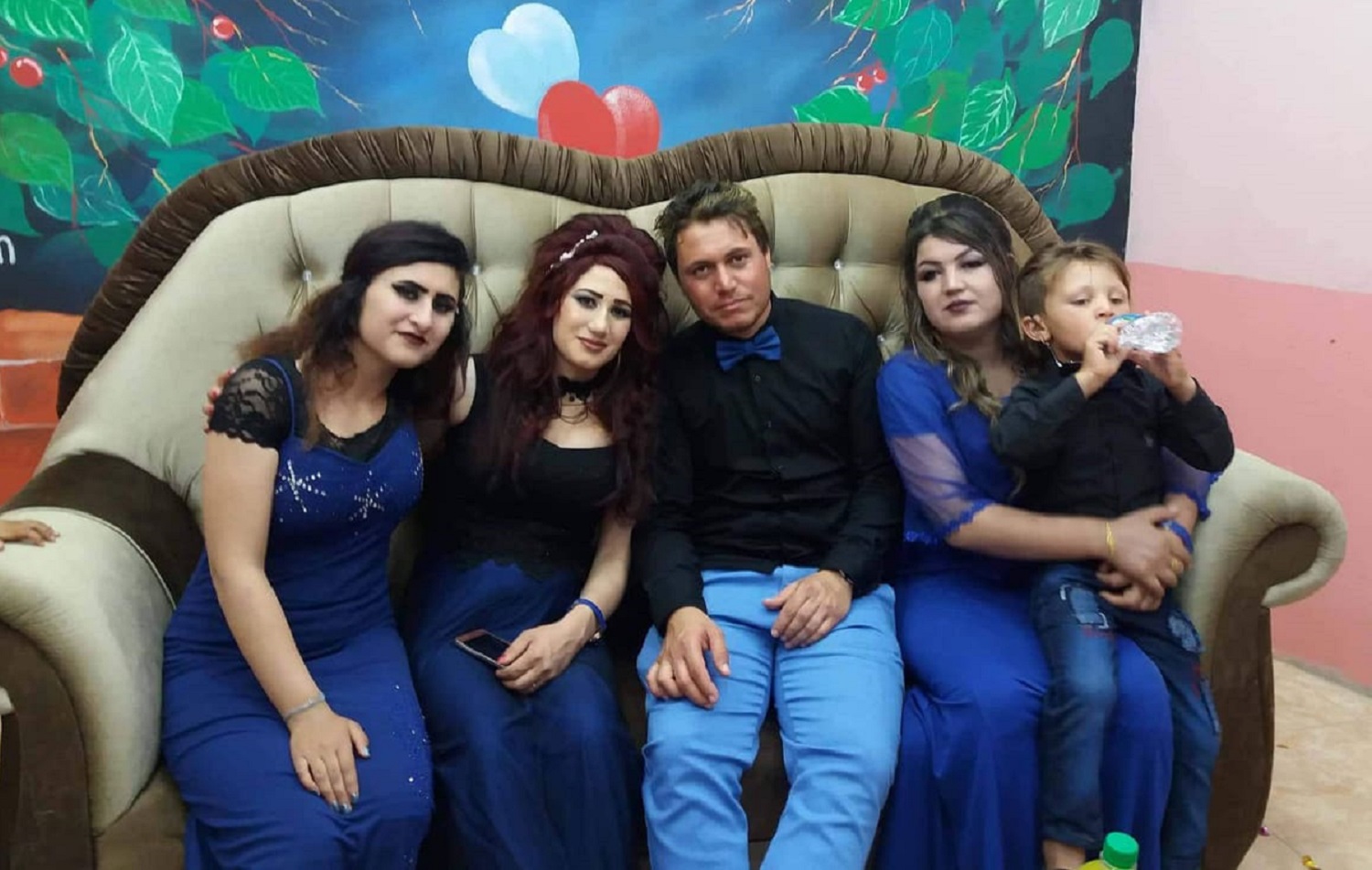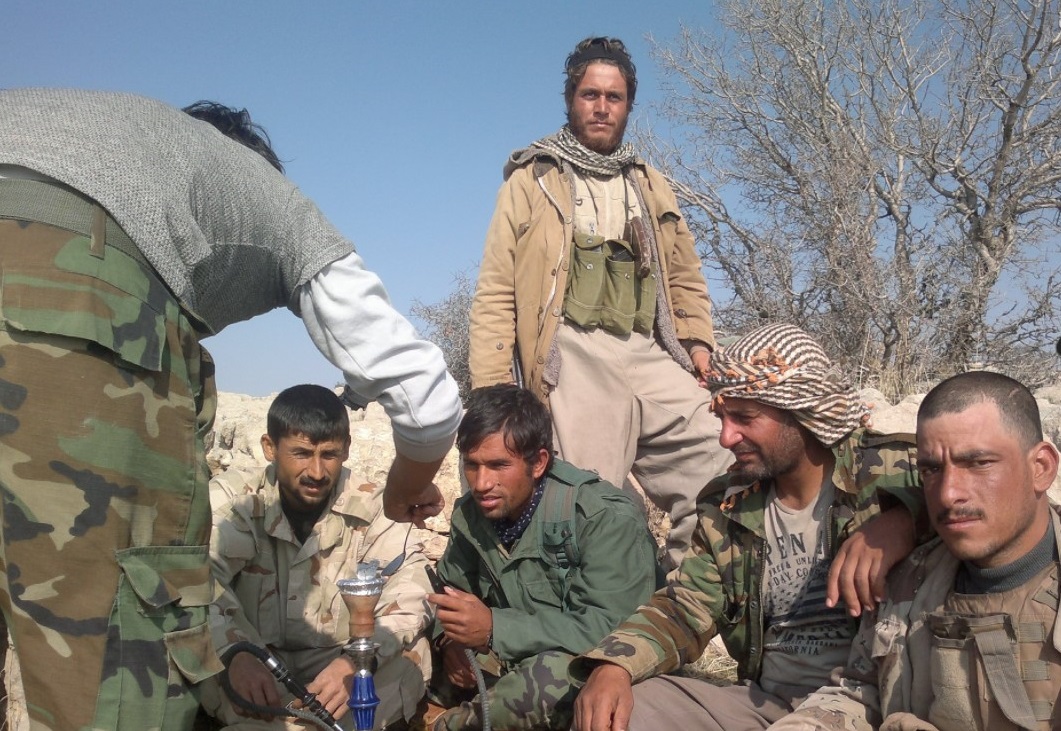ERBIL, Kurdistan Region – A strong gale blew through the canvas walls of the tents at the camp, home to 10,000 Yazidis for seven years now. The gale did not care for the plans of Khalid Elias, a Peshmerga who was supposed to get up early and pick up a few passengers in his taxi to supplement his $300 a month salary.
At around 2 am that night, February 17, Khalid woke up in terror to see his tent on fire, his young, sleeping family oblivious to what was happening around them. Khalid shook his wife Rosa to wake her up. Rosa grabbed seven-year-old Najdo and ran outside while he tried to wake the other two children, 11-year-old Najbir and his younger sister Najdiya.
The fire, caused by a faulty electrical heater in their tent, spread quickly. Bersive’s young and old woke up in terror, and some rushed to the tent to try to put the fire out. Rosa held on to a severely burned Najdo, waiting for her husband to emerge from the blaze.
There was no firefighting team at Bersive 2, so a call was put through to the nearest fire station in the city of Zakho, 20 kilometres to the west of the camp. Khalid had yet to reappear, so Rosa let go of Najdo and tried to run into the blaze. Two men held her back as she screamed. Footage from the scene shows a man armed with an extinguisher far too small to fight the inferno; another man tried to fight it with a bucket of water. It took the fire engine 27 minutes to reach the scene. By then, the fire had decided to put itself out. Khalid and his two children were dead. Najdo died of his injuries at hospital.

Like hundreds of thousands of other Yazidis, Khalid and his family had to flee the Islamic State (ISIS) as it rushed towards the ethnoreligious group’s heartland of Sinjar (also known as Shingal). Many succumbed to the heat on their journey to safety, while several thousands more were either killed or taken prisoner by the thugs of ISIS. Khalid’s family and others have languished in camps ever since. Many Yazidis who have returned to Shingal live in rented accommodation, their homes in settlements, hamlets, and villages either destroyed or still riddled with IEDs left behind by the war – more than three years after the last Iraqi territory was taken back from ISIS.
“Why don’t you come back to Shingal?” Khalid’s older brother Zeydan, an officer in the Iraqi Army, asked him hours before the fire.
“How can I, my brother?” Khalid responded. “I don’t have anywhere to live.”
There had been frequent warnings of what was to come at Bersive, with 18 accidental fires at IDP and refugee camps in Duhok since the beginning of 2021, said Hoshang Mohamed, director general of the Kurdistan Regional Government's Joint Crisis Coordination Centre (JCC). None of the 15 IDP camps in Duhok province have a fire engine on site, said Salih Hamo, team leader for the NGO Joint Help for Kurdistan, which works at the Bajed Kandala camp. Only two of the IDP camps in Duhok have firefighting teams, Mohamed said.
Khalid had told his younger brother Samir about his fear for his family following a fire in a nearby camp that had destroyed a dozen tents and the possessions within them. Their tent, made of canvas and plastic sheeting, was supposed to be replaced once every two years, but it had been used for seven.
“We are all scared of a fire breaking out,” Khalid had told Samir a week before the blaze that killed him and two of his children.
Love and turmoil
Khalid met and fell in love with Rosa at the school they attended in the settlement of Siba Sheikh Khidir, south of Mount Shingal, sometime after the 2003 war in Iraq. The couple had been together for four years before they decided to run away together. It was a relatively normal thing for young couples to do, and once the family negotiated a solution, they agreed that the two could formally marry, which they did in 2009.
Before they married, Khalid and Rosa survived an attack by Islamist militants thirsty for the blood of Yazidis, who they considered infidels. In August 2007, the militants rammed vehicles packed with explosives into buildings in Siba Sheikh Khidir and neighbouring towns, killing almost 800 people and maiming thousands more.
Shingal was one of the most underdeveloped parts of Iraq, its young men either ending up working in Arab farms or moving around the Kurdistan Region or Iraq proper in search of work. Seeking job security and somewhat regular pay, many Yazidis like Khalid joined the Peshmerga, the Iraqi Army, or the federal police. With little work available in the Shingal area, Khalid decided to join the Iraqi Army the year he got married, to ready himself for his future family. The following year, Khalid and Rosa had their first child, a son, and called him Najbir. Their daughter Najdiya was born soon after, in 2011.
Khalid’s job was dangerous, the Shingal area riddled with jihadist groups, but he managed to escape with his life. He was content living with Rosa in their house in Siba Sheikh Khidir. Photos from their wedding party appear to show a couple that is poor, but happy. Rosa smiles, but Khalid is stern, looking straight into the camera.

In the early hours of August 3, 2014, as ISIS closed down on Khalid’s hometown of Siba Sheikh Khidir, he and several dozen other Yazidi men, four of them Khalid’s brothers, pulled out their AK-47s and took up position to fight the militants hellbent on their destruction. The Peshmerga were not very helpful, so local Yazidis held up the militants for as long as they could. In those five hours, many families were able to flee the settlement and head up to Mount Shingal.
Yazidis living in Siba Sheikh Khidir were originally from two villages at the foot of Mount Shingal, but Saddam Hussein and his Baathist regime had depopulated the area after government forces defeated a Kurdish insurgency in 1975. Forced from their homes, they were brought together in settlements like Siba Sheikh Khidir, which the Baathists called Mujama. As the families fled their homes in the settlement, they passed through the villages they had to leave decades ago. They inched up the mountains in cars and on foot, uprooted from their homes once again.
Khalid managed to herd his family to safety across the nearby border with Syria, with the help of Syrian Kurdish fighters. The family moved back across the border to Bersive camp a few months later, Khalid hoping to return to his homeland someday. Once his wife and children had settled in at the camp, Khalid picked his gun back up and joined the Peshmerga to fight the jihadists. One photo shows him looking like a proud warrior, his wavy fair hair grown out a little and an AK-47 in his left hand.

Red tape
The French humanitarian organisation ACTED conducted a survey in 2016 at a number of IDP camps in Iraq. “No respondents had spoken with their family about what to do in the event of a fire,” the survey found.
The United Nations High Commissioner for Refugees (UNHCR) is tasked with looking after the interest of the refugees and the IDPs. “UNHCR provides shelter assistance, core relief items, and coordinates with humanitarian actors to complement the work of local authorities to improve living conditions of IDPs and refugees in camp and non-camp settings throughout Iraq. This includes the distribution of tents, blankets, mattresses, kitchen sets and sanitary kits,” an agency statement reads. However, repeated warnings from the local authorities including the fire brigade team in Duhok province about safety went unheard, and IDPs like Khalid and his family have lived in tents way past their expiration date. Rudaw English reached out to UNHCR representatives in February for comment on fire safety at Bersive and other camps in the Kurdistan Region, but did not receive a response.
When Zakho firefighters arrived at the camp at around 2:30 am on February 17, they were met with a scene of devastation. Rosa lost her husband and all three of her children two months ago. All she gained that day were the burns to her hands and neck that persist. She now lives with her mum in Esyan camp near the Yazidi town of Baadre, Khalid's brother Samir said, where she is finding it "difficult" to cope with her trauma. Bewar Abdulazizi, Duhok’s civil defence spokesperson, said that his force is powerless to deal with most fires because of how large the area under their control is.
“We only have 1,200 employees and we are responsible for all the fires including in the forests,” Abdulaziz said. “Even though there are forest police, Peshmerga, and the Zeravani, they don’t put out the fire – we do.”
In the first two years after the ISIS invasion, around ten organisations, including the UNHCR, had asked the Zakho fire brigade to provide training on fires to the IDPs, but governorate red tape brought an end to the process.
“They didn’t come after 2016. Why? Because the job was given to the Joint Crisis Coordination Centre, and then the Duhok governorate said to these organizations that they must notify them before they go to the camps, so that they can ask the camps to work with you. So they increased the bureaucracy.”
“Their job became complicated, the bureaucracy increased, and then they didn’t come.”
Additional reporting by Shahla Omar and Shahyan Tahseen



